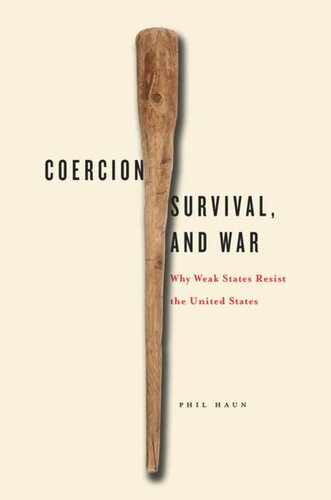

Most ebook files are in PDF format, so you can easily read them using various software such as Foxit Reader or directly on the Google Chrome browser.
Some ebook files are released by publishers in other formats such as .awz, .mobi, .epub, .fb2, etc. You may need to install specific software to read these formats on mobile/PC, such as Calibre.
Please read the tutorial at this link: https://ebookbell.com/faq
We offer FREE conversion to the popular formats you request; however, this may take some time. Therefore, right after payment, please email us, and we will try to provide the service as quickly as possible.
For some exceptional file formats or broken links (if any), please refrain from opening any disputes. Instead, email us first, and we will try to assist within a maximum of 6 hours.
EbookBell Team

5.0
40 reviewsIn asymmetric interstate conflicts, great powers have the capability to coerce weak states by threatening their survival—but not vice versa. It is therefore the great power that decides whether to escalate a conflict into a crisis by adopting a coercive strategy.
In practice, however, the coercive strategies of the U.S. have frequently failed. In Coercion, Survival and War Phil Haun chronicles 30 asymmetric interstate crises involving the US from 1918 to 2003. The U.S. chose coercive strategies in 23 of these cases, but coercion failed half of the time: most often because the more powerful U.S. made demands that threatened the very survival of the weak state, causing it to resist as long as it had the means to do so. It is an unfortunate paradox Haun notes that, where the U.S. may prefer brute force to coercion, these power asymmetries may well lead it to first attempt coercive strategies that are expected to fail in order to justify the war it desires.
He concludes that, when coercion is preferred to brute force there are clear limits as to what can be demanded. In such cases, he suggests, U.S. policymakers can improve the chances of success by matching appropriate threats to demands, by including other great powers in the coercive process, and by reducing a weak state leader's reputational costs by giving him or her face-saving options.